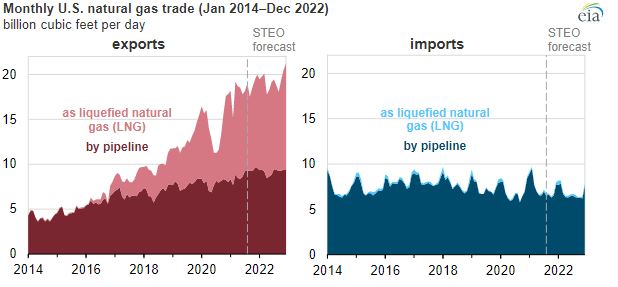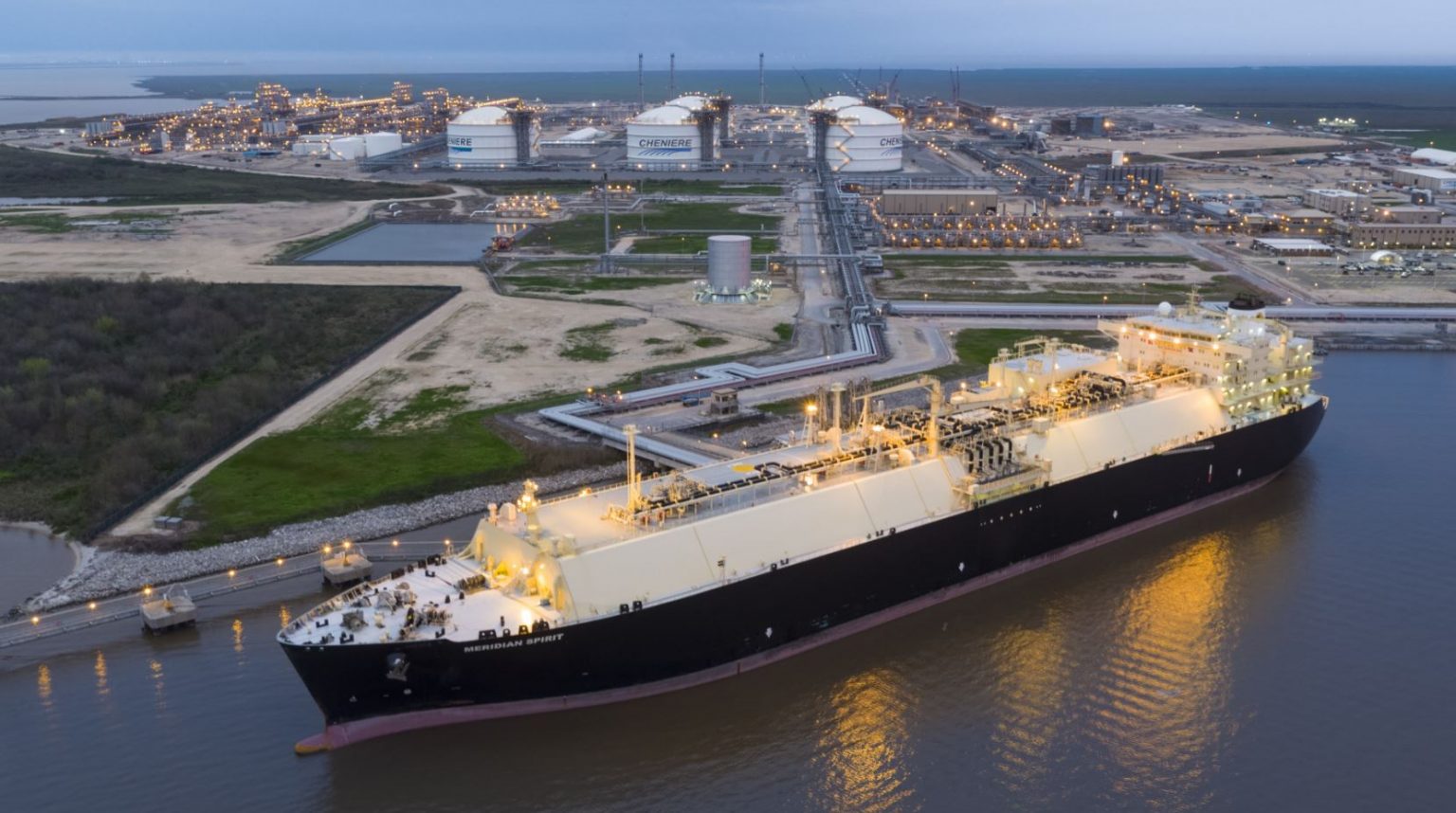US LNG shipments will exceed pipeline natural gas exports this year for the first time since 2016, according to the Energy Information Administration.
In its August short-term energy outlook, the agency forecasts that US natural gas exports would exceed natural gas imports by an average of 11.0 billion cubic feet per day (Bcf/d) in 2021, or almost 50% more than the 2020 average of 7.5 Bcf/d.
Increases in liquefied natural gas (LNG) exports and in pipeline exports to Mexico will drive this growth in US natural gas exports.
For the first time since US LNG exports from the Lower 48 states began in 2016, annual LNG exports are expected to outpace pipeline exports—by an estimated 0.6 Bcf/d—this year, according to EIA.
US exports to continue to set records
EIA forecasts total US natural gas exports to continue to grow throughout 2021 and 2022, exceeding the record of 14.4 Bcf/d set in 2020.
The agency expects US exports of natural gas by pipeline and as LNG combined to average 18.3 Bcf/d in 2021 and 19.3 Bcf/d in 2022.

Moreover, LNG exports exceeded pipeline exports for the first time on a monthly basis in November 2020, and EIA expects them to average 9.5 Bcf/d and exceed natural gas imports by pipeline (8.9 Bcf/d) in 2021.
In 2020, natural gas exports accounted for 23% of total US energy exports in energy equivalent terms.
US LNG exports in particular have grown as the United States has added LNG export capacity and expanded its LNG export destinations.
EIA said it expects US imports of natural gas by pipeline and as LNG, combined, to increase by 6% compared with 2020, averaging 7.4 Bcf/d in 2021, before declining to 6.9 Bcf/d in 2022.
Almost all US natural gas imports enter the United States from Canada into midwestern and western demand markets.
US pipeline imports previously had been declining annually since 2008. However, EIA expects pipeline imports of natural gas to increase in 2021 because of relatively flat US dry natural gas production and slightly higher natural gas consumption.

